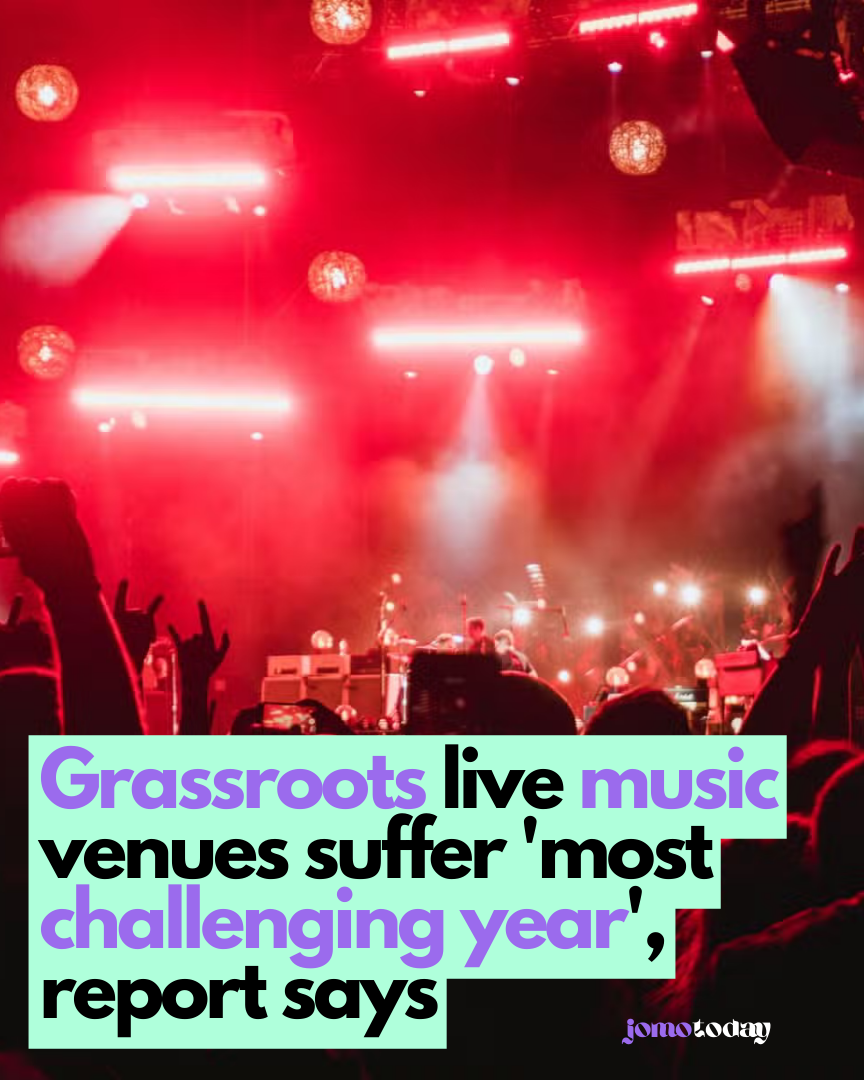In 2023, soaring costs led to 125 grassroots live music venues ceasing to offer live music, making it the most challenging year for these establishments, according to a report by the Music Venues Trust.

Soaring costs forced 125 venues to stop offering live music in 2023, the Music Venues Trust says.
In 2023, financial pressures forced 125 UK music venues to cease live music events, with over half permanently closing down, according to the Music Venues Trust (MVT). The surviving 835 venues faced significant challenges, dealing with soaring utility bills and an average 37.5% increase in rent. The MVT highlighted that these venues, which typically operated with a slim profit margin of just 0.5%, were at risk. The year was deemed the most difficult for the sector in the past decade.
Despite contributing over £500 million to the economy and providing employment for nearly 30,000 people, the grassroots music scene remained notably underfunded compared to other cultural sectors, as per the MVT’s annual report. The organization noted an increased demand for its emergency crisis line, witnessing a 38% rise in calls seeking financial and legal assistance as losses escalated.
Venues dedicated exclusively to live music endured significant setbacks, facing an average shortfall of £137,501 over the past year, even though fans typically paid higher ticket prices and spent more per attendee.
MVT reports a 35% closure rate among grassroots venues in the last two decades, pointing to the recent shuttering of Moles in Bath after 45 years. This alarming trend poses a serious threat to the vitality of the British music industry, according to The Last Dinner Party, a prominent indie rock band that recently topped the BBC Sound Of poll.
Throughout the pandemic, The Last Dinner Party cultivated their sound by performing in clubs and small venues during the brief periods between lockdowns, eventually rising to become one of the most prominent emerging acts in the UK. Guitarist Lizzie Mayland emphasized the band’s deep commitment to advocating for local venues, stating, “We are truly passionate about preserving these spaces. They’re where we, and countless other incredible bands, kick-started our careers. If these venues continue to close, it jeopardizes the emergence of new artists and their ability to establish themselves.”
The George Tavern, a historic pub located in Stepney Green, east London, serves as a notable venue facing the challenges of preserving grassroots spaces. Owned by Pauline Forster, an artist herself, the pub has become a symbol of resistance against the growing struggles confronting such establishments.
In 2019, Forster successfully obtained a rare protection order against noise complaints, thanks in part to a celebrity campaign. However, she now highlights the escalating costs that have become “totally mad.” The electricity bill alone skyrocketed by 300%, surging from £12,000 to nearly £36,000, excluding heating expenses, according to Forster.
Furthermore, she points out that insurance costs have become exorbitant, with many insurers categorizing live music spaces as “high risk.” Forster recently paid a staggering £9,000 for insurance, illustrating the industry’s perception that these venues are at risk of going out of business.
In the face of these financial challenges, pubs and small venues are struggling to survive, leading to closures at an alarming rate.
Forster emphasizes the crucial need for VAT tax breaks and assistance with energy costs for venues, particularly those operating under rental agreements. She argues that such support is essential in acknowledging the significant contribution these venues make to British culture and the music industry.
She questions how bands like The Last Dinner Party can emerge without grassroots venues like The George serving as a breeding ground. Despite being 74, Forster finds solace in owning her property outright, shielding her from unexpected rent increases.
The Music Venue Trust (MVT) sees property ownership as a potential solution for small venues. Recently, The Snug in Atherton, Greater Manchester, became the inaugural grassroots gig venue to benefit from MVT’s ‘Own Our Properties’ initiative, launched in May 2022. This project allows fans to invest in endangered venues, with MVT revealing plans for “several” more purchases in 2024.
The Trust is advocating for large arena venues to allocate a portion of their ticket proceeds to support grassroots initiatives, drawing parallels to the Football Association’s strategy with Premier League clubs.
The charity aims to secure a £1 contribution to grassroots venues from each arena ticket sold by January 1, 2025. In 2023, it directly granted £282,546 to venues and aims to increase this amount to £550,000 this year.
NME’s news editor, Andrew Trendell, suggests the implementation of a legally mandated ticket levy for gigs at arena level and above. He points to the example of rock band Enter Shikari, which successfully applied a ticket levy without additional costs to consumers. France has already enacted laws for taxation benefiting grassroots initiatives.
Trendell emphasizes the urgency of the situation, asserting that it is crucial for the government and the industry to take decisive action to preserve UK music. He warns that the loss of venues would be irreplaceable, resulting in thousands of music enthusiasts lacking access to affordable live performances. This, in turn, would diminish opportunities for young individuals to be inspired to form bands, limit spaces for artists to refine their skills, impede the growth of the UK’s live music workforce, and significantly reduce the country’s cultural influence.
In the era dominated by TikTok and Spotify algorithms for music discovery, the significance of vibrant, live music experiences has arguably never been more crucial, as traditional music press loses its influence.
Jon Tolley, co-owner of Banquet Records in Kingston and promoter of the New Slang gig night, emphasizes that while nurturing talent is important, the perspective shouldn’t solely be a stepping stone mentality. Tolley, with over two decades of experience putting acts like Wolf Alice and Stormzy in close proximity to fans, values the unique experience of witnessing smaller bands in intimate venues, like the Fighting Cocks pub, playing to a crowd of 100.
However, the current challenges facing nightlife venues, such as the recent announcement of Pryzm nightclub chain’s owners, Rekom, considering administrators, pose a threat. Pryzm’s Kingston club hosts Banquet’s larger New Slang shows. In response, Banquet Records, in a statement on X (formerly Twitter), assured that they had been informed the venue was secure for the time being, but they are exploring precautionary alternative options.
The events venue relocated its events to the current location following the conversion of the town’s other prominent nightclub, the Hippodrome, into residential flats. If Kingston Pryzm were to close as well, it would signify the third nightclub closure in the town within the past decade. This would result in Kingston’s Rose Theatre being the sole remaining sizable and easily accessible live music venue in the local area.
The statement concluded with a poignant message emphasizing the importance of supporting nightclubs, as well as other establishments such as record shops, gig venues, skate shops, and bookshops, stating that active patronage is crucial to their survival.
The sense of urgency is at the core of Independent Venue Week, which receives backing from BBC Radio 6 Music.
In the upcoming week, the station is set to resume its tour bus journey across the UK, featuring Steve Lamacq and Huw Stephens hosting shows from various independent venues daily.
Lamacq expressed concern about the alarming revelations from the latest grassroots report by MVT. “The findings are quite concerning,” he stated. “Without prompt action, we may witness the loss of another significant number of these venues in the coming year.”
sh, set to take the stage at the Oh Yeah Music Centre in Belfast this Monday, emphasizes the vital role of independent venues in the realm of live music.
“These venues are the breeding grounds for future festival headliners. They are the crossroads where chaos meets creativity, and the experience is so intimate, you can almost reach out and touch it.
Independent venues open up a vast realm of musical possibilities. Without them, we’re left with a void of musical expression.”
Read More: Madonna sued by fans in New York over late concert start time






Leave a Comment